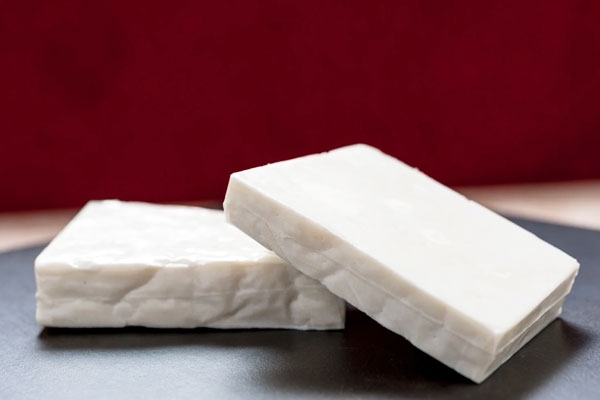
(Image source from: Canva.com)
Paneer is very important in Indian households. It is a reliable source of protein and provides comfort. Recently, there has been a concerning issue in the country: the increase in fake or imitation paneer. This type of paneer is made using cheap alternatives instead of real milk. Not only does this fake product affect the flavor and nutrition, but it can also be a danger to health. In the article below, we present some essential information and advice that every buyer should know before purchasing their next paneer. We have also added an insightful video (which became popular on social media lately) that highlights which kinds of paneer might be safe to eat. Fake paneer, often called imitation paneer, looks like traditional paneer but does not use real milk or milk fat. It is usually made with vegetable oils, starches, synthetic agents for curdling, and milk solids to copy the texture and appearance of genuine paneer. Although the final product may seem similar, the nutritional content is significantly different. Real paneer is a great source of high-quality protein, calcium, and healthy fats, while fake versions offer little in terms of nutrition and might include harmful trans fats or extra chemicals.
The main reason fake paneer has become more common is to save money. Pure milk is costly, and when there is high demand or a shortage, some companies choose cheaper substitutes to increase their profits. Food safety authorities report that these imitation products often appear in poorly regulated local markets, large catering services, and street food vendors. Badly processed imitation paneer may contain inedible oils or chemical whiteners that are unsafe to eat and can cause stomach problems, food poisoning, or long-term health issues.
Eating fake paneer often can lead to various health risks:
Digestive issues: Artificial curdling agents and inedible fats can result in stomach pain, acidity, or feeling sick.
Heart problems: The vegetable fats found in imitation paneer could include trans fats, which are known to raise cholesterol levels and increase the chances of heart disease.
Chemical risks: Some of the added substances and whitening chemicals are not safe for food, and they can harm your body in various ways.
Lack of nutrients: Compared to real paneer, imitation paneer misses out on vital nutrients, vitamins, and minerals.
Is Branded, Packaged Paneer Safe To Consume?
Food and health influencer Revant Himatsingka, known as 'Food Pharmer', recently posted an in-depth article about fake paneer. In a video that has gained popularity, he details his process of checking various types of paneer to determine if they are genuine. He collected 11 samples of paneer and had them tested in a lab. Under the category he labeled "Normal Branded Paneer," he examined Amul Fresh, Amul Malai, Gowardhan, and Humpy A2 paneer. According to the findings, all passed the safety analysis. In the "High-Protein, Low-Fat Paneer" section, he chose ID High Protein, Milky Mist, and Desi Farms paneer for scrutiny. None of these raised any concerns in the laboratory.
Next, he tested samples from vendors at street food stalls. The video displays short clips of his conversations with various sellers, who asserted their paneer was made entirely from 100% milk. However, the lab findings disagreed, showing that the three samples he chose - Paneer 65, Paneer Crispy, and Paneer Tikka - did not pass the food safety assessment conducted in the lab. Additionally, Revant noted that some samples from local dairies also failed to meet safety standards. These findings imply that certain name-brand paneer products may be safer to eat compared to street food paneer, and caution is advised when it comes to local dairies.
How To Spot Fake Paneer?
It can be difficult for the average consumer to tell fake from genuine paneer, but a few easy checks can help:
Feel Test: Real paneer has a soft yet firm texture, while fake paneer often feels rubbery, too smooth, or greasy.
Scent and Flavor: True paneer has a gentle milky scent and taste. A strong oily or artificial smell might mean it has been tampered with.
Hot Water Test: Place a small piece in hot water. Genuine paneer stays whole and soft, while fake paneer may break down or produce an oily surface.
Burn Test: If you heat real paneer a little, it gives off a milk-like scent; imitation paneer usually has a plastic smell.
Tips For Safe And Smart Purchasing:
Choose products from reliable dairies or well-known brands that follow good hygiene practices and quality checks.
Steer clear of extremely cheap paneer, especially from open markets. If a price seems too appealing, it likely is.
Examine packaging and storage carefully. Paneer should always be kept chilled and sold in sealed, labeled packages.
Think about making paneer at home using quality milk.
Report any suspicious cases to local food safety officials.
Paneer is a favorite food in India, but its purity should never be overlooked. With the rise of fake products, it’s important for consumers to be alert. By learning how to recognize authentic paneer and purchasing only from trustworthy sources, families can safely enjoy this nutritious staple.







